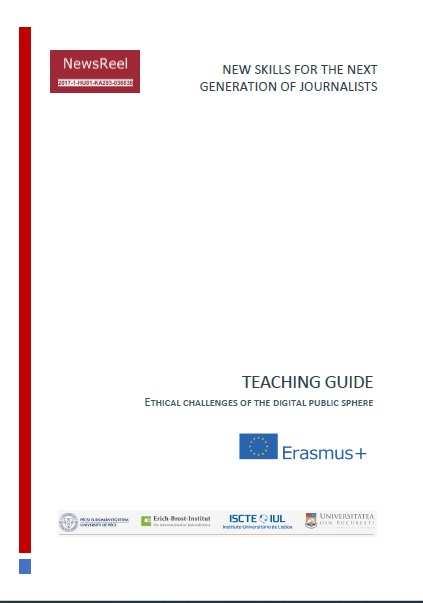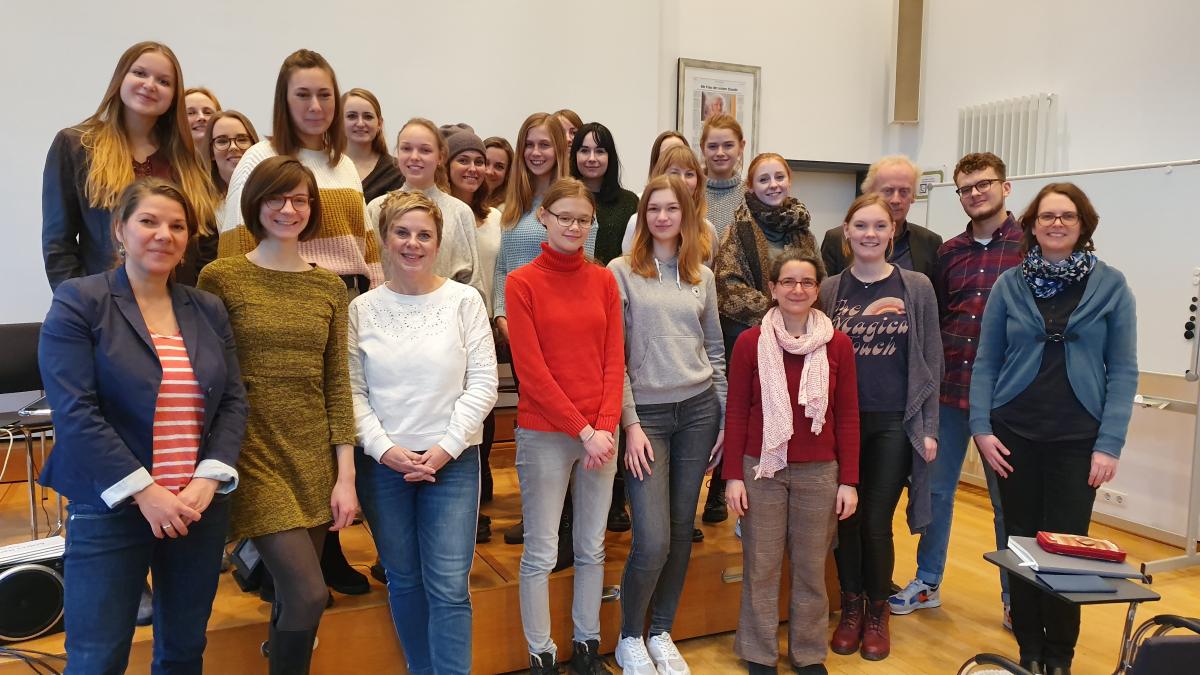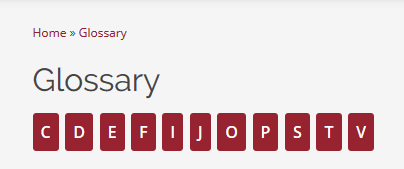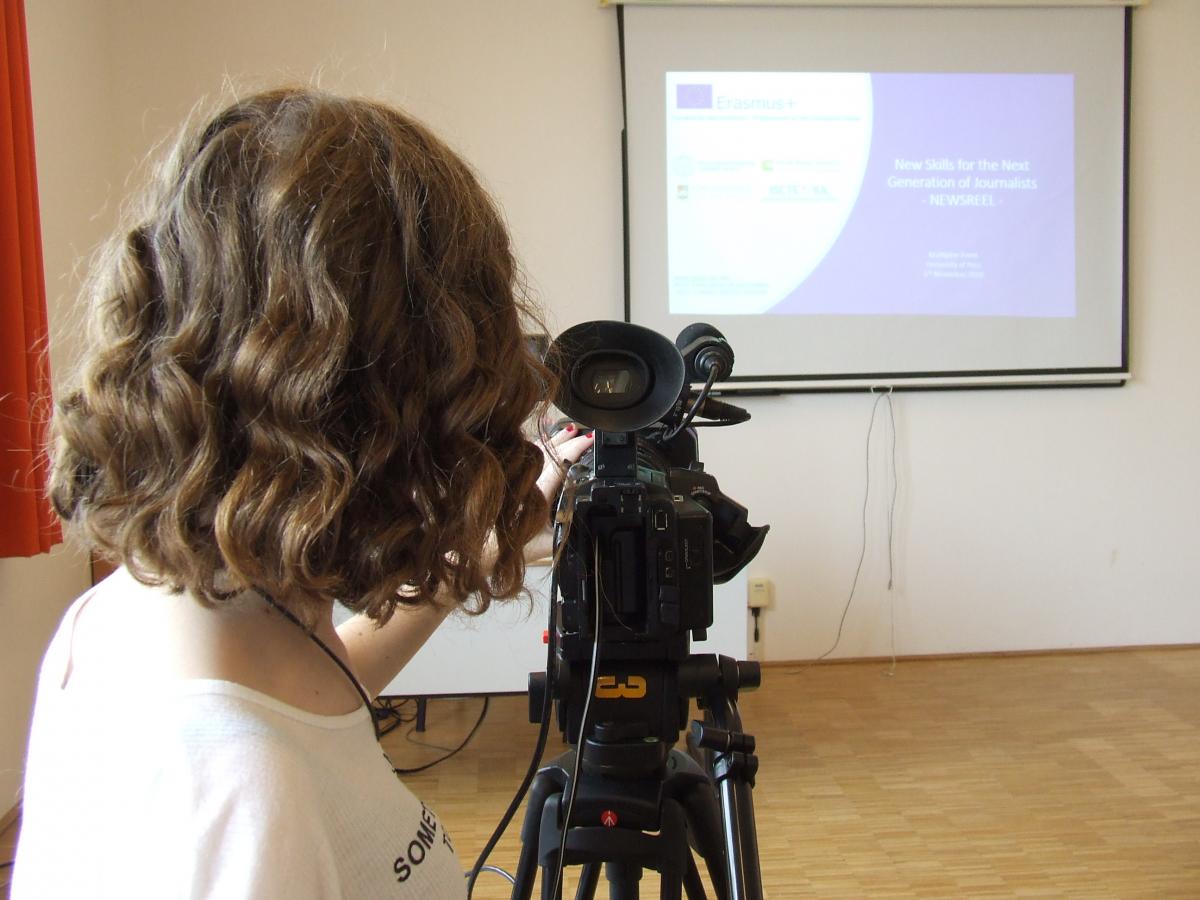 The set of activities in Phase 4 aimed at testing and finalizing the syllabi and the e-learning materials of the previous phases, and at summarizing the project results in a form that will help to use the outcomes of NEWSREEL by third parties.
The set of activities in Phase 4 aimed at testing and finalizing the syllabi and the e-learning materials of the previous phases, and at summarizing the project results in a form that will help to use the outcomes of NEWSREEL by third parties.
As a result of these activities we had courses at the participating universities as a pilot teaching activity. All of the participants organized at least one, one semester long course. The University of Pécs had courses on all of the professional fields of the project. During these courses, we implemented the syllabi and use all of the e-learning materials. The experiences of the courses were summarized in four teaching guides, each for one field. The teaching guides introduce the professional and methodological content of the project and the objectives of the courses. They give a detailed description on the skills and competencies developed by our e-learning materials and a collection of practical examples.
The guides can be downloaded from here:
Data Journalism and Visualization
Collaborative Journalism
News Media Business, Innovation and Project Development
Ethical Challenges of the Digital Public Sphere

What happens when students from Hungary, Portugal, Romania and Germany join forces to investigate the challenges of environmental protection across Europe?
We wanted to find out and dove into the subjects of veganism, youth activism, climate change deniers and sustainable shopping. During the process, we experienced frustration, revelations, and unexpected success.
by Jana-Sophie Brüntjen
 As a result of Phase 5, we will have a free accessible online glossary in English, that helps to build a common knowledge base. Because of the novelty of the elaborated information and competences, there is no common framework of notions and terminology.
As a result of Phase 5, we will have a free accessible online glossary in English, that helps to build a common knowledge base. Because of the novelty of the elaborated information and competences, there is no common framework of notions and terminology.
The structure of the glossary follows the fields of the syllabi and the e-learning materials, therefore it includes the most important terms of data journalism, collaborative journalism, business models of journalism and ethical challenges connected to digitalization.
The new entries that are available:
| Coding | Cross-media |
Encryption | Surveillance |
| Computer assisted reporting (CAR) | Crowdsourcing | Investigative journalism |
Volontariat |
 Collaborative journalism has brought us amazing investigations. But it is no universal remedy for the problems that journalism is facing worldwide.
Collaborative journalism has brought us amazing investigations. But it is no universal remedy for the problems that journalism is facing worldwide.
For journalists it is not an entirely new thing to collaborate, but against the background of the current technological and economical revolutions, collaborating with each other has become more important for journalists and media outlets than what one would have expected ten years ago. Single journalists and media enterprises start collaborations with potential competitors, several case studies and manuals give insight into diverse practices, workshops and university seminars prepare journalism students for future collaborations.
by Nadia Leihs

The third multiplier event of NEWSREEL with the title of How to teach digital journalism skills, took place in Pécs, Hungary on the 6th of November. The main aim of the event was introducing the e-learning materials that we developed in the third phase of the project. The materials are connected to the fields of data journalism, collaborative journalism, new business models of journalism, and the ethical challenges of the digital public sphere.
The project team was represented by:
Gábor Polyák and Annamária Torbó, University of Pécs, Hungary - Ethical challenges of the digital public sphere
Ana Pinto Martinho and Miguel Crespo, ISCTE - Lisbon University Institute, Portugal - New business models of journalism
Nadia Leihs (via Skype), Erich Brost Institute, Germany - Collaborative journalism
Emilia Șercan University of Bucharest, Romania - Data journalism and data visualization
Click on read more for the whole report on the event!